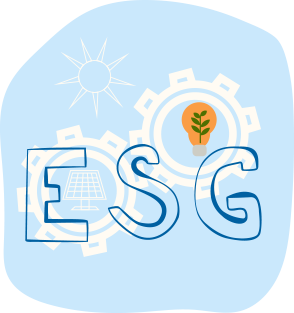You know that you want to make a difference in the world—but it might be tough to figure out how to go about it in the context of your career. You might start by focusing on careers in ESG, which stands for Environmental, Social, and Governance). ESG principles have become increasingly more important as companies become more aware of the social and environmental impact they have on social justice and the environment. Jobs in this area focus on making the world a better place.
There are many ESG career path options that could help you make a lasting, positive impact. For example, careers in social work, education, or healthcare could all help people get the resources they need to live happier, healthier lives. You may consider making a positive impact on the world by contributing to the environment through working as an environmental scientist, urban planner, or conservation specialist. Or, you could work for a company that is particularly committed to driving positive change. Companies that utilize ESG policies to make a difference include Cigna Corporation, HP (Hewlett Packard), Cisco Systems, and others.
This article is geared toward providing you with a better understanding of ESG and its importance for social and environmental change. We’ll also discuss ESG career options in depth (including job descriptions, salary estimates, and typical education required) that could help you change the lives of people around the globe for the better.
What Is ESG? Defining Environmental Social Governance
Environmental, Social, and Governance (ESG) refers to a framework of principles that investors, businesses, and organizations use to evaluate and measure the sustainability and ethical impact of an investment or business operation.

Environmental
The “E” in ESG focuses on the environmental aspects of a company’s practices. It includes considerations related to the company’s impact on nature and ecosystems, such as its carbon footprint, resource usage, waste management, and commitment to environmental conservation.

Social
The “S” in ESG pertains to the social aspects of a company’s operations. This encompasses how a company manages relationships with its employees, communities, and other stakeholders. Social considerations include labor practices, diversity and inclusion, employee well-being, community engagement, and adherence to human rights.

Governance
The “G” in ESG relates to the governance structure and practices of a company. Governance considerations involve evaluating the company’s leadership, transparency, ethical decision-making, adherence to legal and regulatory frameworks, and the overall effectiveness of its governance structures.
ESG Careers
ESG jobs involve creating policies, procedures, and initiatives that drive a company’s mission to help the world by focusing on environmental and social responsibility. You’ll find such jobs in many industries. For example, the technology sector places emphasis on environmental sustainability, ethical use of technology, and corporate governance. ESG considerations are embedded in the development and deployment of technology solutions. The healthcare sector emphasizes ethical practices in research, development, and patient care. ESG considerations include ethical drug pricing, social responsibility, and corporate governance. And consumer goods and retail companies integrate ESG principles into supply chain management, product sustainability, and social responsibility. Ethical sourcing and fair labor practices are key considerations.
One strategy for finding an ESG job is to research companies that have high ESG rankings. They often have ESG departments that require people with a variety of skills. A second strategy is to pursue careers that embody ESG principles. Following is a discussion of the latter types of careers in each category of ESG, with salary and job projection information for each.
Environmental jobs
Jobs in environmental science could have a far-reaching impact on the world, contributing to the understanding, preservation, and sustainable management of the environment. Environmental scientists, ecologists, conservationists, and other professionals in this field play critical roles in addressing pressing global challenges.
Environmental science jobs include:
Learn more about Environmental Jobs
Social impact jobs
These jobs could make a difference at both the personal and global levels. Some social impact jobs involve working one-on-one with children, young adults, or people in need, while others work at a broader level to help policy-makers and communities improve social programs and conditions.
These jobs don’t just make a difference to the people you meet on the job–they could also help inspire those people to make a difference in the lives of others. Whether you’re educating, providing medical care, or helping someone connect with the resources they need to better their lives, these jobs could make a difference.
Social impact jobs include:
Learn more about Social Impact Jobs
Information governance jobs
Information governance refers to a comprehensive framework of policies, processes, and controls implemented within an organization to manage and protect its information assets. It includes components such as data management, information security, and privacy.
Information governance careers include:
Learn more about Environmental Jobs
Conclusion
The intersection of jobs that make a difference and Environmental, Social, and Governance (ESG) principles represents a powerful force shaping the future of work. As we navigate a world increasingly conscious of its impact on the planet and society, careers aligned with ESG values are at the forefront of positive change. Whether it’s environmental scientists working to protect natural resources, social workers advocating for vulnerable populations, or ESG professionals guiding organizations toward sustainable practices, these roles embody a commitment to creating a better, more equitable world.


